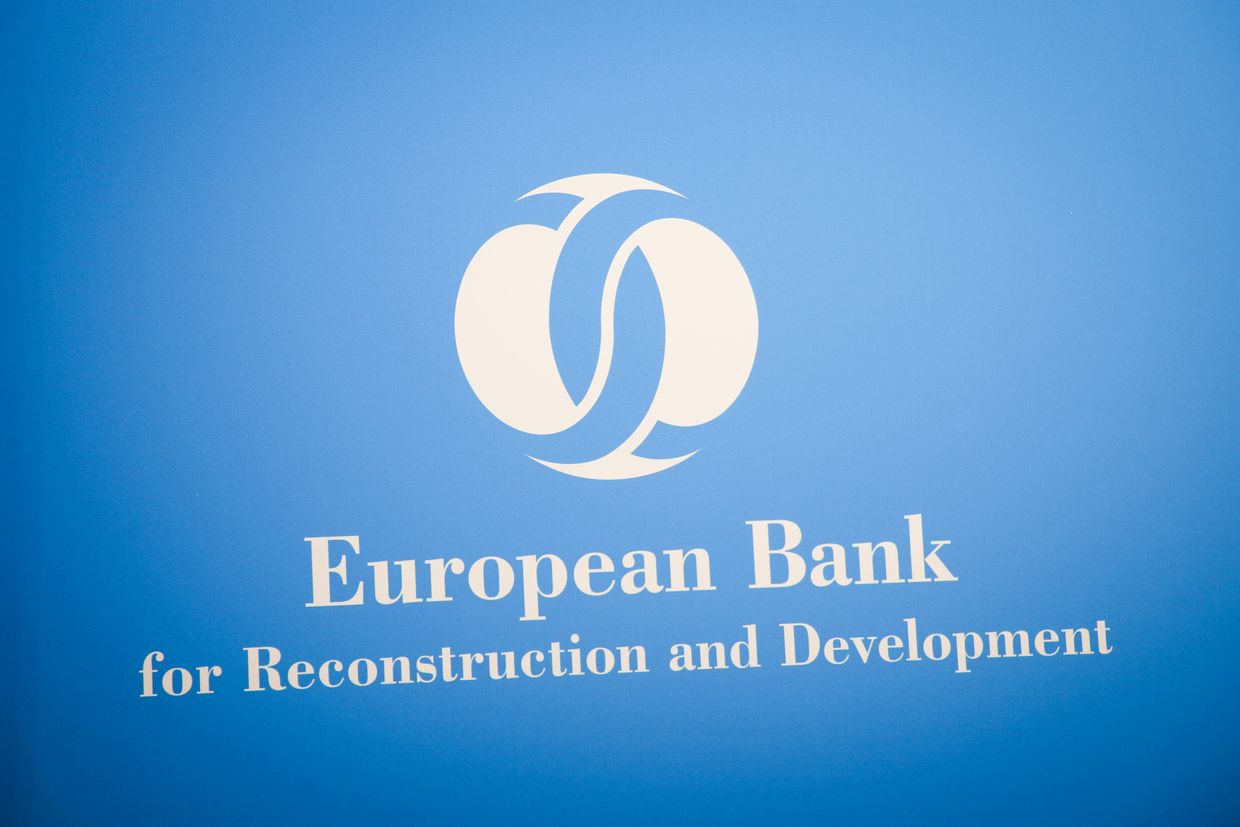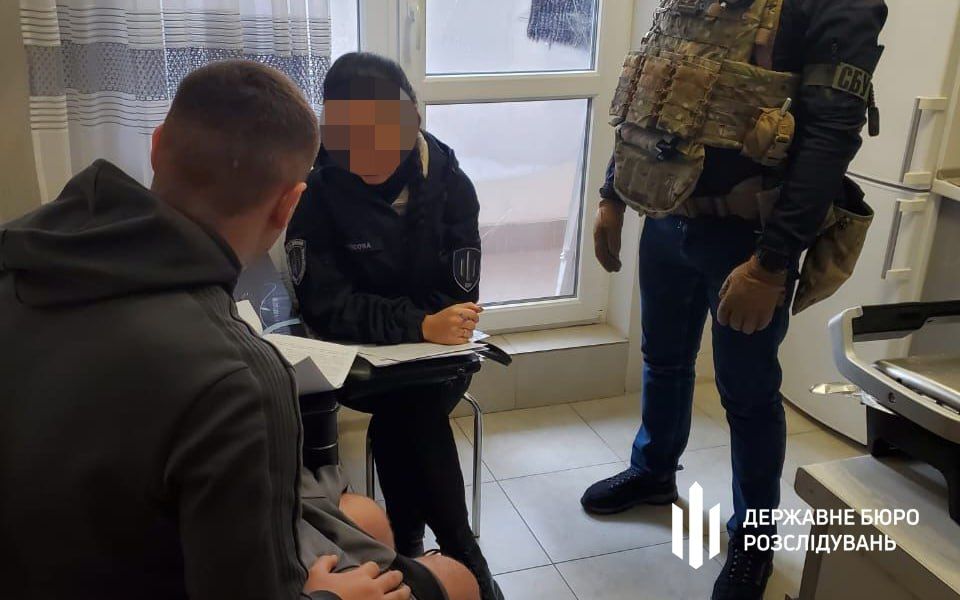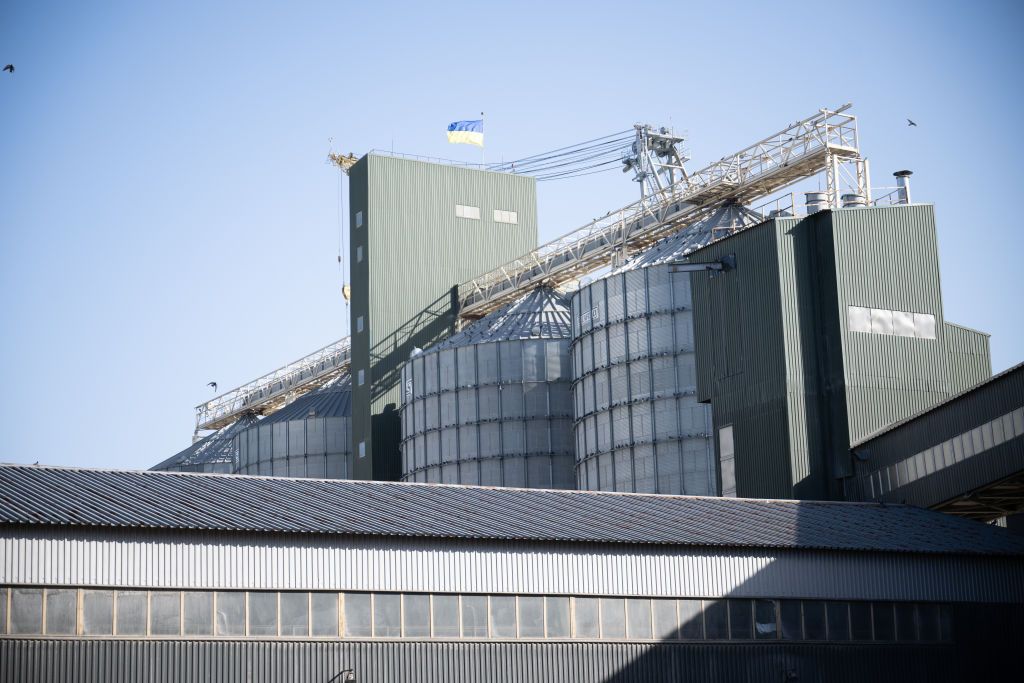Everyone talks about investing in Ukraine, but few are doing it

Despite its economy steadily improving from the first months of the full-scale invasion, very little foreign capital is currently trickling down to Ukraine’s private and public sectors.
Money from international financial institutions has helped stabilize the economy, bolstering forecasts of 3.2% gross domestic product (GDP) growth this year, according to the World Bank. But private investors are still hesitant in the face of a protracted conflict and war risk insurance programs have failed to persuade most.
“It's impossible to expect investments during the war. The risk of war is so huge,” Serhii Fursa, the deputy managing director at investment firm Dragon Capital, told the Kyiv Independent.
There is practically zero foreign investment outside of large international financial institutions, he added.
Following Russia’s full-scale invasion in February 2022, foreign direct investment (FDI) plummeted from $6.5 billion in 2021 to just $570 million in 2022, according to the Vienna Institute for International Economic Studies (WIIW).
The National Bank of Ukraine (NBU) said it was not able to provide figures on foreign investments in 2023 by the time of publication.

The low volume of FDI is largely down to physical risk. If an international company purchases a factory or plant, Russia may deliberately strike it as part of its economic war against Ukraine.
These are not hypothetical threats. Ukraine’s agricultural giant Nibulon began constructing a grain silo in Odesa Oblast last year using a loan from Denmark’s Export and Investment Fund (EIFO), only for Russia to destroy the facility in a missile attack.
The team from Ukraine’s online reconstruction platform, Digital Restoration Ecosystem for Accountable Management (DREAM), told the Kyiv Independent that Russian forces are checking projects on the platform’s database to target construction sites. They noted that Russian strikes hit close to a water pipeline construction in an industrial region that contributes to 10% of Ukraine’s GDP.
War risk insurance programs have also been slow to take. The programs that are either underway or in progress will only cover exports at first.
The first ship insured under the Unity facility, a joint project between the Ukrainian government, New York-based risk management firm Marsh McLennan, and London-based insurance company Ascot to reduce insurance costs of grain exports, left Ukraine’s port last month.
Another scheme, developed by the U.K. and the European Bank for Recovery and Development (EBRD), also plans to insure exports with the goal of covering more areas, such as construction, over time.
Despite these various insurance plans, investors aren’t convinced, according to Fursa. “War risk insurance is so hard to get. And it's very complicated in a bureaucratic way,” he said.
He does not see war insurance as a worthwhile guarantee for investors in the face of such high risks. Fiscal compensation does not overcome the potential loss of time and administrative capabilities if a site is destroyed, he said.
Some foreign companies are braving the risks. In 2023, the Carlsberg Group announced investments of $40 million at its Kyiv factory as well as $55.52 million in separate commercial projects.
But the majority of foreign companies investing in Ukraine, like Carlsberg, are enterprises that have been operating in the country for years prior to the full-scale invasion.

Direct foreign investors are also few and far between. One exception is Chinese entrepreneur Zhikai Wang who recently invested in the company Sonyachne Remeslo. The company plans to begin mining an amber deposit in Rivne Oblast, according to Ihor Mazepa, head of investment firm Concord Capital which owns the Tomashhorod amber deposit.
The project will begin in the spring of this year and is expected to bring in tens of millions of dollars to Ukraine’s economy and create around 100 new jobs.
“Zhikai Wang became one of the few direct foreign investors in Ukraine during the war,” Mazepa wrote on Facebook on Feb. 5.
Business scandals have also plagued Ukraine in recent months, likely putting off foreign investors. Law enforcement detained Mazepa on his way to the World Economic Forum in Davos, Switzerland, on Jan. 18, under suspicion of illegally seizing land in 2013.
Mazepa denies the accusations, claiming his arrest is related to his involvement in the "Manifesto 42" group which defends the rights of businesses in Ukraine.
The group recently criticized President Volodymyr Zelensky for not doing enough to defend businesses from heavy-handed treatment from law enforcement officials.
Fursa said the majority of investments are from institutions like the World Bank or the EBRD. Last year, the EBRD invested $24.5 million of equity in a $70 million Lviv industrial park as part of a joint venture with Dragon Capital.
The bank is Ukraine’s largest institutional investor. In 2023, the EBRD invested a record 2.1 billion euros ($2.3 billion) in Ukraine, including 1 billion euros ($1.1 billion) for Ukraine’s private sector, and 1.7 billion euros ($1.8 billion) in 2022.

With reconstruction costs piling up, Ukraine called upon the international private sector for assistance at the Ukraine Recovery Conference in London in June 2023. As of March 2023, the World Bank estimates that Ukraine will need $411 billion to rebuild.
Kyiv launched a reconstruction bank with financial giants BlackRock and JPMorgan Chase to garner foreign capital. Rostyslav Shurma, deputy head of President Volodymyr Zelensky's office, confirmed that the fund has $500 million in commitments so far with $1 billion anticipated in the next six months.
However, BlackRock Vice-Chairman Philipp Hildebrand told Reuters that while the fund could be ready within the year, the company will avoid investing in high-risk enterprises. Ukraine’s OECD risk level will need to drop before mobilizing BlackRock’s assets, he added.
Ukraine’s risk level is currently rated seven by the OECD, the highest level which is shared by other countries in conflicts like Afghanistan and Sudan, as well as highly corrupt countries like Belarus.
In October 2023, the Economy Ministry sent a proposal to the OECD requesting Ukraine’s level be revised to category six following improvements in its GDP forecast for 2024. This would halve the premium insurance rate, reducing the cost of equipment and facilities for Ukrainian companies, the ministry noted.
For now, however, Fursa believes Ukraine’s situation doesn’t look set to change. He notes that there is little the government can do to encourage investors while the war is ongoing and he doesn’t expect investments to come until hostilities end.
“It’s bad because economic growth is based on investments, and foreign investments are very important because they bring a lot of capital, management skills, and professionalism,” he said.
“Nobody really expects that we will see some foreign investors during the war.”














